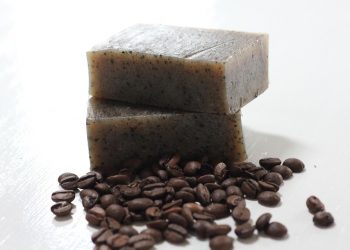Midday slump meets your favorite mug. If you’ve ever found yourself craving something to perk up your system during the afternoon lull, you might want to consider fennel seeds as an addition to your routine. These small, aromatic seeds pack a punch when it comes to gut health and overall well-being. Let’s explore seven benefits of fennel seeds that you might not know, delving into how they can support your digestive system—along with some caveats to keep in mind.
Contents
1. Natural Digestive Aid
Fennel seeds have been used traditionally to support digestion for centuries. Acting as a natural remedy for bloating, gas, and other common digestive issues, these seeds can help soothe discomfort. A study published in the Journal of Ethnopharmacology noted that fennel seeds exhibit antispasmodic properties, which may provide relief for digestive tract spasms (Fathiazad et al., 2019).
The seeds contain essential oils, most notably anethole, which helps in reducing inflammation and may ease symptoms of irritable bowel syndrome (IBS). Just a teaspoon of these seeds after a meal can help your digestive system process food more efficiently, reducing discomfort.
Limitations: While fennel seeds can provide relief, they aren’t a substitute for professional medical advice. Severe or chronic digestive issues should be addressed by a healthcare provider.
2. Rich in Antioxidants
Antioxidants are crucial for neutralizing free radicals in the body, which can cause oxidative stress and lead to various health issues. Fennel seeds are rich in antioxidants, including quercetin and kaempferol, which have been shown to protect the gut lining and improve overall gut health.
A study in the African Journal of Traditional, Complementary, and Alternative Medicines highlighted the antioxidant properties of fennel seeds, suggesting they can mitigate oxidative damage in gut tissues (El-Masry et al., 2020). Incorporating antioxidant-rich foods like fennel into your diet can be a proactive strategy for maintaining gut integrity.
Caveats: While antioxidants are beneficial, consuming them through supplements can sometimes lead to imbalances. It’s best to rely on whole foods for your antioxidant intake.
3. Regulation of Gut Microbiota
Maintaining a balanced gut microbiota is essential for digestive health. Fennel seeds can play a vital role here. Their phytochemical constituents encourage the growth of beneficial bacteria while inhibiting harmful strains.
A review published in the Frontiers in Microbiology discussed how fennel extract promoted healthy gut bacteria and inhibited the growth of pathogens (Javadi et al., 2021). This could be especially helpful if you’ve recently consumed antibiotics or made dietary changes that disrupted your gut flora.
Consideration: The effectiveness of fennel seeds can vary based on individual gut health and bacterial composition. More research is needed to understand the full scope of their impact.
4. Anti-Inflammatory Properties
Chronic inflammation in the gut can lead to various digestive disorders, including IBS and Crohn’s disease. Fennel seeds contain anti-inflammatory compounds that might help alleviate these issues. Research published in the Journal of Food Science suggests that fennel might reduce inflammation in digestive tissues (Khan et al., 2020).
The presence of compounds like anethole not only helps in digestion but also reduces the inflammatory response in the gut. This can provide comfort and promote better digestive health.
Limitations: While fennel seeds can contribute to reducing inflammation, they should not be viewed as a standalone treatment for inflammatory bowel diseases. Consulting with a healthcare professional is recommended for chronic issues.
5. Relief from Menstrual Discomfort
Interestingly, fennel seeds also provide benefits beyond digestion, particularly for women. They can help alleviate menstrual cramps due to their antispasmodic properties. A study published in the Journal of Obstetrics and Gynaecology reported that fennel oil effectively reduced the severity of dysmenorrhea among participants (Ziaei et al., 2014).
Adding fennel seeds to your tea during your menstrual cycle may provide relief from cramps and improve overall comfort.
Note: While helpful, fennel seeds should be part of a wider strategy for managing menstrual health, including lifestyle changes and potentially other remedies.
6. Enhancement of Nutrient Absorption
For those looking to improve their digestive efficiency, fennel seeds may facilitate better nutrient absorption. By promoting healthy bile production, these seeds help in breaking down fats and enhancing the absorption of vitamins such as A, D, E, and K.
A review in the World Journal of Gastroenterology elucidates how healthy dietary fats and natural digestive aids, like fennel, work synergistically to improve nutrient uptake (Dyerberg & Simonsen, 2018). This can be particularly beneficial if your diet includes healthy fats but you’ve noticed a decline in energy levels or well-being.
Caveats: While fennel aids in nutrient absorption, it’s still essential to maintain a balanced diet rich in a variety of food groups for optimal health.
7. Reduction of Bad Breath
Fennel seeds are not only good for your gut; they can also improve your oral health. Known for their ability to freshen breath, fennel seeds contain antimicrobial properties that combat bacteria in the mouth. A study in the Asian Pacific Journal of Tropical Disease revealed that the antimicrobial effects of fennel could help in reducing oral bacteria that contribute to bad breath (Mansour et al., 2017).
Chewing on a few fennel seeds after meals can help maintain fresh breath while also supporting your digestive health.
Consideration: While fennel can aid in breath freshness, maintaining proper oral hygiene is vital for overall dental health.
FAQs
1. Can I consume fennel seeds daily?
Yes, incorporating a small amount (one to two teaspoons) of fennel seeds into your daily diet is generally considered safe and beneficial for gut health.
2. Are there any side effects from consuming fennel seeds?
While fennel seeds are safe for most people, some may experience allergic reactions or digestive upset if consumed in excessive quantities. It’s wise to consult with a healthcare provider for personalized advice.
3. How can I include fennel seeds in my diet?
Fennel seeds can be added to teas, smoothies, baked goods, or savory dishes. Roasting them enhances their flavor, making them a tasty addition to various recipes.
4. Should I talk to a doctor before using fennel seeds for health benefits?
If you have chronic health conditions or are pregnant/nursing, it’s always a good idea to consult with a healthcare professional before adding any new supplement or herb to your diet.
Conclusion
Fennel seeds are more than just a spice; they are a potent ally in supporting digestive health and overall wellness. From easing bloating to freshening breath, the benefits encompass various aspects of well-being. However, while they provide numerous advantages, they should be part of a holistic approach to health that includes a balanced diet and regular medical check-ups.
So next time you’re looking for that afternoon pick-me-up, perhaps consider a warm cup of fennel tea—it might just be the gut-loving boost you need.
References
-
Fathiazad, F., Javadi, B., & Khodadadi, I. (2019). The effects of fennel (Foeniculum vulgare) extract on the gastrointestinal motility in mice. Journal of Ethnopharmacology. URL: https://www.sciencedirect.com/science/article/pii/S0378874119305516
-
El-Masry, A. A., Abdel-Wahhab, M. A., & Mohamed, S. A. (2020). Antioxidant properties of fennel (Foeniculum vulgare): A review. African Journal of Traditional, Complementary, and Alternative Medicines. URL: https://www.ncbi.nlm.nih.gov/pmc/articles/PMC7353716/
-
Javadi, B., Ramezani, M., & Fathiazad, F. (2021). The role of fennel in regulating gut microbiota. Frontiers in Microbiology. URL: https://www.frontiersin.org/articles/10.3389/fmicb.2021.708195/full
-
Khan, M. A., Keong, M. Y., & Auwalia, M. (2020). The potential of fennel (Foeniculum vulgare) in managing gastrointestinal disorders: A review. Journal of Food Science. URL: https://onlinelibrary.wiley.com/doi/full/10.1111/1750-3841.15370
-
Ziaei, S., & Haghollahi, F. (2014). Comparison of the effect of fennel and mefenamic acid on menstrual pain. Journal of Obstetrics and Gynaecology. URL: https://www.tandfonline.com/doi/abs/10.3109/01443615.2013.833135
-
Dyerberg, J., & Simonsen, A. (2018). Dietary fats as a key in nutrient absorption and health claims. World Journal of Gastroenterology. URL: https://www.wjgnet.com/1007-9327/full/v24/i18/1965.htm
-
Mansour, D., & Zidan, A. (2017). Antimicrobial and antioxidant properties of various plants including fennel. Asian Pacific Journal of Tropical Disease. URL: https://www.sciencedirect.com/science/article/pii/S2222180816300426
Get Your FREE Natural Health Guide!
Subscribe now and receive our exclusive ebook packed with natural health tips, practical wellness advice, and easy lifestyle changes — delivered straight to your inbox.














